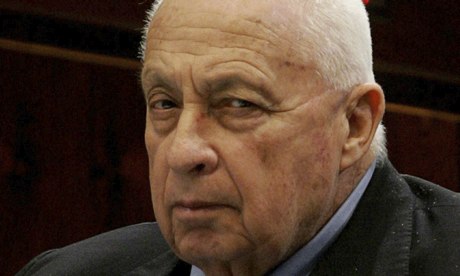Death finally claims Ariel Sharon after eight years in coma
After being in a coma for 8 years, Sharon finally dead. He had a stroke in 2006 and it was hoped he would recover but it didn't happen. He will be remembered as having been involved in a lot of aggression against Arabs during his long illustrious military career and later prime minister.


 Monday September 16, 2013 06:11
Monday September 16, 2013 06:11 by IMEMC & Agencies
by IMEMC & Agencies

